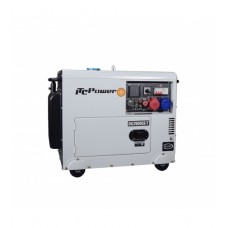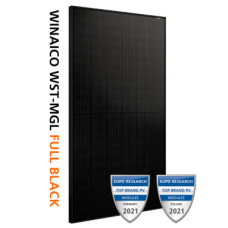Generators
A generator is a machine that generates electric power. There are different types of generators that are operated in different ways, such as photovoltaic systems, wind power systems, and combined heat and power plants (CHP).
Photovoltaic systems are generators that convert solar energy into electric power. They consist of photovoltaic cells that convert light energy into electric energy. The cells are packaged into modules that are then combined into solar parks or individual systems. Photovoltaic systems have the advantage of being environmentally friendly and renewable, and they do not emit any emissions. They can be used anywhere there is sufficient sunlight, and are a popular choice for generating electricity in rural areas or on the roofs of buildings.
Overall, generators, particularly photovoltaic systems, provide an environmentally friendly and renewable alternative to fossil fuels used for electricity generation. They can contribute both to supporting electricity supply in rural areas and to saving electricity costs in urban areas. Although there is still room for improvement, the use of generators remains an important option for energy generation in the future.
ITC-POWER DG7800SE-T Diesel
Generator ITC-POWER DG7800SE-T Diesel (old designation DG7500SE-T)with AVR voltage regulatorwith Ele..
2,541.00€ Ex Tax: 2,100.00€
Winaico WST-MGX-P1 Gemini 400Wp
Winaico WST-MGX-P1 400Wp solar panelPerfection that sets the standard Manufactured with the newe..
268.62€ Ex Tax: 222.00€


